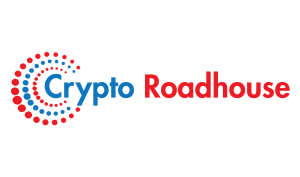
The Hong Kong Securities and Futures Professionals Association (HKSFPA) has called to establish independent self-regulatory organizations (SRO) dedicated to overseeing the digital assets sector.
The initiative comes in response to the rapid growth and increasing complexity of the industry. It aims to enhance the regulatory landscape to support innovation and security within the burgeoning field.
As part of its proposal, the HKSFPA suggests that the Securities & Futures Commission (SFC), Hong Kong’s primary financial regulator, should continue to oversee market conduct. However, it recommends that licensing authority be distributed among industry players, including those in securities, futures, asset management, and virtual assets.
SROs
Recognizing the unique challenges posed by cryptocurrencies, blockchain technology, and other digital assets, the proposed SRO would focus on crafting tailored regulations that address the specifics of digital currency exchanges, initial coin offerings (ICOs), and related financial services.
Chen Zhihua, President of the HKSFPA, emphasized the necessity for Hong Kong to adopt a forward-thinking approach to maintain its competitiveness as a global financial hub. He added that the dynamic nature of digital assets demands a regulatory body that can swiftly adapt to technological advancements and market changes.
Additionally, an independent SRO for digital assets would empower the crypto industry to implement effective oversight while promoting ethical practices and protecting investors.
The strategy outlined by the HKSFPA aims to balance the need for regulatory oversight with the imperative to promote industry growth. It also seeks to prevent the extremes of stringent supervision that could stifle innovation, drawing on lessons from other markets like Lithuania, which is set to tighten its crypto regulations starting in 2025 after facing challenges such as compliance failures and embezzlement.
Responsibilities
The proposed body would set and enforce standards, as well as play a pivotal role in educating the industry and the public about the benefits and risks associated with virtual assets. It would collaborate closely with technology experts and financial analysts to ensure regulations keep pace with the fast-evolving digital asset technologies and market conditions.
Furthermore, the HKSFPA suggests that this specialized SRO would handle issues such as cybersecurity threats, fraud detection, and the transparency of transactions involving virtual assets.
It would also coordinate with international regulatory bodies to align with global standards, enhancing Hong Kong’s stature as a safe and attractive destination for digital asset investors and companies.
By proposing a dedicated SRO, the HKSFPA aims to create a structured yet flexible regulatory environment that not only addresses the current needs of the virtual assets market but also anticipates future developments.
Hong Kong’s approach stands in contrast to stricter regulatory frameworks emerging globally, signaling the city’s ambition to consolidate its status as a major international financial hub. As the global landscape for cryptocurrency regulation evolves, Hong Kong’s move towards self-regulation could serve as a test case for the effectiveness of such frameworks in fostering responsible yet dynamic market environments.

